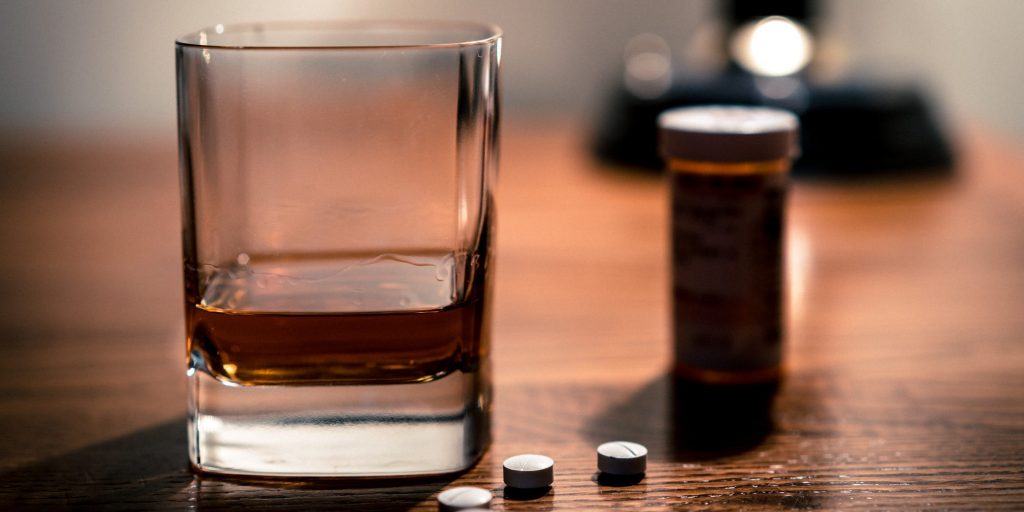- Mixing lexapro and alcohol will not result in any lethal reactions, but it can impair your health.
- You may have increased drowsiness and decrased alertness and coordination.
- Combining lexapro and alcohol may also worsen your depression or anxiety in the long-term.
- Visit Insider's Health Reference library for more advice.
Lexapro, also known as escitalopram in its generic form, is a type of antidepressant in a class of drugs called selective serotonin reuptake inhibitors (SSRIs). It's commonly prescribed for generalized anxiety disorder and depression.
"When consuming alcohol in moderation, the simultaneous use of Lexapro does not pose any imminent life-threatening interactions," says Paul Poulakos, DO, board-certified psychiatrist in private practice.
That being said, mixing alcohol and Lexapro is not ideal and generally not recommended, says Poulakos. Here's what you need to know about the interaction between alcohol and Lexapro.
Effects of mixing alcohol and Lexapro
Figueroa says mixing alcohol and Lexapro results in a chemical interaction that can cause the exaggeration of the negative side effects of alcohol. For example, Carlos Figueroa, MD, board-certified psychiatrist with Keck Medicine of USC, says that you may experience:
- Increased drowsiness
- Decreased alertness
- Impaired motor coordination
- Agitation
- Violence in rare cases
This can lead to difficulty completing certain tasks, and can be extremely risky. "Given the additive effects alcohol and Lexapro can have on coordination, consuming both could potentially lead to dangers when operating a motor vehicle or heavy machinery," says Poulakos.
One individual's response to drinking while taking Lexapro can be very different from the next. Figueroa says while some people may be able to get away with having a drink or two, escaping potential negative side effects and risks, it's not something that's medically recommended,
How alcohol affects mental health disorders
"While alcohol is often thought of as a recreational substance that takes the edge off and allows one to let go of their anxiety in the short term, it can actually worsen one's anxiety or depression in the long term," says Poulakos.
It's important to think about the long-term and the reason you are on Lexapro in the first place. Drinking while taking Lexapro can be dangerous for your mental health since alcohol may decrease the effectiveness of the medication, leading to a worsening of depression, says Figueroa.
Alcohol also has the potential to impact our reward system and create a physiological dependence which can lead to dependence or even addiction, Poulakos says.
Furthermore, if you are dependent on or abusing alcohol, Figueroa says you can cause:
- Alcohol use disorder
- Alcohol induced depressive disorder
- Bipolar disorder
- Psychosis
One thing to be extremely mindful of is that if you suffer from depression, you may be more likely to develop alcohol use disorder. Additionally, increased drinking is associated with an increased likelihood of depression, so the risks go both ways.
Insider's takeaway
When taking Lexapro, drinking alcohol may contribute to a worsening of mental health, which can be very counterintuitive when you are taking a medication that's meant to improve your mental health.
It's in your best interest to abstain from or minimize alcohol intake when you take Lexapro, says Figueroa. If you think you may be having difficulty with this, talk with your doctor.
